Ensuring Continuous Preparedness
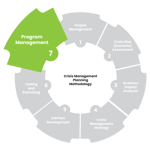 Your journey through Crisis Management Planning Methodology has culminated in a comprehensive crisis management plan.
Your journey through Crisis Management Planning Methodology has culminated in a comprehensive crisis management plan.
However, Phase 7: Program Management emphasises ongoing preparedness. This chapter equips you with the tools to ensure your plan remains dynamic and your organisation stays prepared for any unforeseen challenge. Regular review and updates are crucial. Phase 7 establishes a process for maintaining your crisis management plan. Schedule regular reviews to assess its effectiveness, incorporate lessons from real-world events or exercises, and adapt the plan to reflect any changes within your organisation or the evolving threat landscape.
Regular review and updates are crucial. Phase 7 establishes a process for maintaining your crisis management plan. Schedule regular reviews to assess its effectiveness, incorporate lessons from real-world events or exercises, and adapt the plan to reflect any changes within your organisation or the evolving threat landscape.
By continuously monitoring the environment and updating your plan accordingly, you ensure it remains a relevant and dynamic safeguard for your organization.
An effective crisis management plan is only as good as those implementing it. Phase 7 highlights the importance of training and awareness programs. Develop training programs tailored to different employee levels, ensuring everyone understands their roles and responsibilities during a crisis. Regular training sessions and awareness campaigns empower your workforce with the knowledge and confidence to respond effectively.
Finally, Phase 7 emphasises the importance of After-Action Reviews (AARs). Following any crisis event or exercise, conduct a thorough AAR to gather feedback, identify areas where the plan functioned well or could be improved, and develop concrete action items for continuous improvement.
By fostering a culture of learning from experience, you ensure your crisis management program remains adaptable and empowers your organization to navigate any future challenge with skill and composure.
Phase 7: Program Management
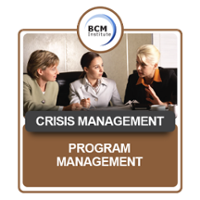 Congratulations! You've successfully navigated the six core phases of Crisis Management Planning Methodology. However, crisis preparedness is an ongoing process.
Congratulations! You've successfully navigated the six core phases of Crisis Management Planning Methodology. However, crisis preparedness is an ongoing process.
Phase 7: Program Management equips you with the tools to maintain a dynamic and effective crisis management program.
This chapter emphasizes the importance of regular plan updates, ongoing training initiatives, and thorough after-action reviews to ensure your organisation remains prepared for any unforeseen challenge.
Plan Maintenance and Updates
A crisis management plan is not a static document. The world around you is constantly evolving, and so should your plan. Phase 7 focuses on establishing a process for regularly reviewing, updating, and maintaining your crisis management plan.
- Schedule Reviews. Establish a regular review schedule (e.g., annually or biannually) to assess the plan's effectiveness and identify areas for improvement.
- Monitor Threat Landscape. Continuously monitor the evolving threat landscape, including new threats, emerging technologies, and regulation changes.
- Lessons Learned. Incorporate lessons from real-world events or internal exercises to strengthen your plan's preparedness for future situations.
- Organisational Changes. Adapt the plan to reflect any organisational changes, such as restructuring, new departments, or personnel changes.
Maintaining a Dynamic Plan
By incorporating these updates, you ensure your crisis management plan remains dynamic and reflects your organisation's current reality and the ever-evolving threat landscape.
Training and Awareness Programs
An effective crisis management plan is only as good as those implementing it. Phase 7 emphasises developing ongoing training and awareness programs for employees across all levels.
- Target Audience. Develop training programs tailored to different audiences, ensuring everyone understands their roles and responsibilities during a crisis.
- Training Content. Training should cover various aspects of the crisis management plan, including response protocols, communication strategies, and resource allocation procedures.
- Regularity and Accessibility. Conduct training sessions regularly and ensure training materials are readily accessible to all employees.
- Awareness Campaigns. Develop awareness campaigns to keep crisis preparedness at the top of all employees' minds.
An Empowered Workforce
Investing in training and awareness programs empowers your workforce to respond effectively during a crisis. A well-trained and informed team is critical to any successful crisis management program.
Conduct After-Action Reviews
Conducting a thorough after-action review (AAR) is crucial following any crisis event, whether large or small or after a crisis management exercise.
An AAR is a structured process for evaluating the effectiveness of your response and identifying areas for improvement.
- Gather Feedback. Solicit feedback from all involved personnel, including the crisis management team, department heads, and employees who participated in the response or exercise.
- Identify Strengths and Weaknesses. Analyze the response to identify areas where the plan worked well and could be improved.
- Actionable Insights. Develop concrete action items to enhance your crisis management plan and response strategies based on the AAR findings.
Continuous Improvement
AARs are invaluable tools for continuous improvement. By fostering a learning culture from experience, you ensure your crisis management program remains robust and adaptable, empowering your organisation to navigate any future challenges confidently.
Summing Up ...
By diligently completing the tasks outlined in Phase 7: Program Management, you cultivate a culture of continuous preparedness within your organization.
Regular plan updates, ongoing training initiatives, and thorough after-action reviews ensure your crisis management program remains dynamic and relevant and empowers your workforce to respond effectively to any crisis situation.
Goh, M. H. (2016). A Manager’s Guide to Implement Your Crisis Management Plan. Business Continuity Management Specialist Series (1st ed., p. 192). Singapore: GMH Pte Ltd.
More Information About Crisis Management Blended/ Hybrid Learning Courses
To learn more about the course and schedule, click the buttons below for the CM-300 Crisis Management Implementer [CM-3] and the CM-5000 Crisis Management Expert Implementer [CM-5].


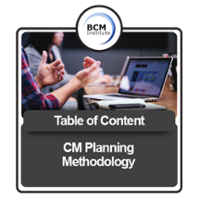
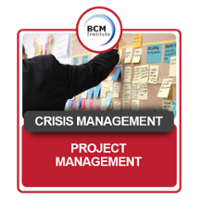
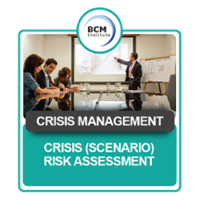

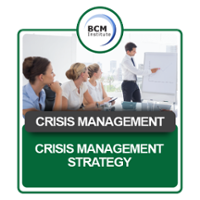
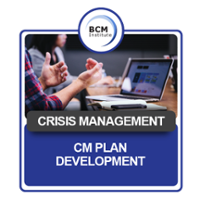
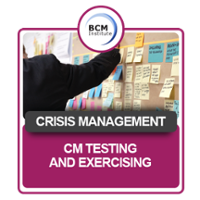






![[BL-CM] [5] Register](https://no-cache.hubspot.com/cta/default/3893111/82024308-16f4-4491-98be-818a882c6286.png)

![Email to Sales Team [BCM Institute]](https://no-cache.hubspot.com/cta/default/3893111/3c53daeb-2836-4843-b0e0-645baee2ab9e.png)





